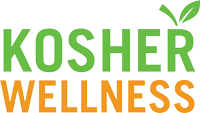Medication or Meditation? Therapies for Managing Your Autoimmune Disease
If you or someone you love has been diagnosed with an autoimmune disease, you may be wondering about which road to take when it comes to therapies and treatment. The goals of both traditional and alternative treatment are the same: to minimize your symptoms, to regain control over the autoimmune system, and to keep your body healthy enough to fight off germs or potential diseases. Deciding on an approach (or even a combination of the two) that fits your unique situation will vary over time. The best advice I can offer is to do your research. Here are some things to think about when choosing a course of treatment.
Medication
Patients with an autoimmune disease often need medication, supplements, physical therapy (depending on the condition), and even blood transfusions. One commonly prescribed medication is an immunosuppressant. These drugs stop the body’s cells from attacking each other unnecessarily…especially the healthy ones. It sounds good initially except a weakened immune system can lead to life threatening infections, so balancing the level of immunosuppressants in your body is important, and you shouldn’t be taking them for long periods of time.
Prednisone, a corticosteroid which suppresses the immune system, is often prescribed to patients when their body is undergoing a sudden increase in symptoms, known as a flare. This powerful drug does a great job of reducing inflammation, but it’s only used for short periods of time because it can cause many different side effects, including:
- acne
- confusion
- excitement
- headache
- nausea
- restlessness
- thinning skin
- trouble sleeping
- vomiting
- weight gain
The Cost Factor Of Autoimmune Therapies
If you’re worrying about the financial aspect of treating your autoimmune disease, you’re not alone. Doctor visits aren’t cheap; medication can be pricey, and health care providers share that burden as well. According to “Treating Human Autoimmunity: Current Practice and Future Prospects,” a scholarly article appearing in Science Translational Medicine,
“More than 100 billion health care dollars are spent each year in the management of autoimmune patients, which places autoimmunity among the most costly diseases to diagnose and treat.” (https://www.ncbi.nlm.nih.gov/pmc/articles/PMC4061980/)
Most experts agree that traditional medications used for treating autoimmune diseases are imperfect, and as they continue to research new approaches, their goals for autoimmune therapies include four key elements:
- To use medication that targets harmful cells while ensuring the rest of the immune system functions normally.
- To help patients reach a stage where they no longer require ongoing treatment.
- To prescribe medication that has minimal side effects.
- To provide reasonably priced treatments.
Sounds ideal, right? In theory, it does, but many common therapies for autoimmune disorders don’t really appeal to most people, or they simply do not contribute to a quality of life worth striving for. If you’re not exactly thrilled with the treatment you’ve received or the medications you need to take, you’re not alone, and alternatives exist that can help you lead a happier and healthier life even with your AI disease.
Food Choices that Can Improve Your Well-Being
Inflammation in the body causes distress and pain, but you can modify your diet to reduce or completely eliminate foods that your body responds to badly. A lot of people follow the Autoimmune Protocol Diet, which keeps inflammation at bay while providing nutrient-dense foods. Just like any diet, you’ll want to start slowly by eliminating a few things at a time. Dairy products and foods that contain gluten are some of the first things you may want to cut back on. Here is a list of others:
- Alcohol
- Beans
- Certain vegetables, such as tomatoes, peppers, and potatoes
- Eggs
- Grains
- Nuts and seeds
- Processed foods
- Sugar
I know there are things on this short list that you really love, but by eliminating them for a short period of time (4-6 weeks), you can gradually add them back to see which ones are causing you trouble. In the meantime, there are plenty of great options that taste good, keep you full, and won’t be difficult to incorporate into your lifestyle. The following options are excellent choices:
- Fatty fish (high in omega-3), such as salmon
- Fermented foods, like kimchi
- Healthier fats, like olive oil and avocados
- Most vegetables, especially organic varieties
Adding Exercise as Therapy Can Help Manage Autoimmune Disease
We all know that exercise is good for us, and incorporating a regular exercise routine into your lifestyle can help your body (and mind) cope with your diagnosis. There are no restrictions here, so choose something you enjoy doing and that’s easy to fit into your normal routine. Walking 20-30 minutes per day helps improve circulation and your mental state while also helping you maintain a healthy weight. And if you’re feeling especially anxious or stressed out about your condition and need to blow off a little steam, consider taking a kickboxing class. It’ll give you something to literally throw yourself into on a regular basis.
Don’t dismiss the power of meditation, yoga, and tai chi, though. While these practices do not require vigorous physical activity, they do demand concentration and focus. Meditation or any mindfulness practice gives you a way of getting in touch with your body through controlled breathing. The end result can help you relax, sleep better, and deal with a problematic flare when it strikes. P.S. It’s also a great way to get some one-on-one time away from the noise of the world.
Concept Summary and Key Takeaways
- Medication is often necessary and can bring welcome relief when you’re undergoing a flare, but it shouldn’t be looked upon as a long-term solution.
- Seeing your doctor on occasion will give you the chance to discuss your symptoms and suggest changes you’d like to make in your maintenance care
- Food does not have to be the enemy. In fact, you may find some dietary changes so pleasurable that you won’t think about the things you’ve eliminated.
- Exercise gives you an outlet for both frustration and anxiety. Getting out in the fresh air will help you find perspective while also keeping your body healthy.
- A mindfulness practice can work wonders to lower your stress levels and help you get in touch with your feelings.









Leave a Reply